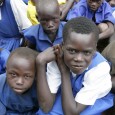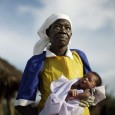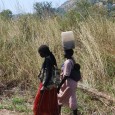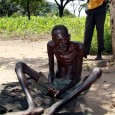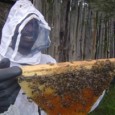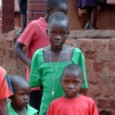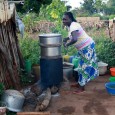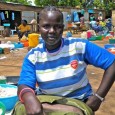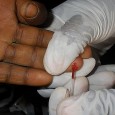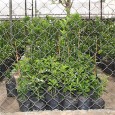Since the signing of the peace agreement in 2005, Omilling village has seen an influx of returning refugees and Internally Displaced Persons (IDPs), including hundreds of war orphans and former child soldiers. The only school the village has to serve several thousand elementary-aged students is a small two-room temporary shack made out of twigs. The shack, used for early elementary, has no text books and no pit latrines (giving the school grounds an unpleasant odor)… Read More
Support a Project
Hope Ofiriha wants donating to our projects to be easy and, so far as possible, tax-effective. The donate menu for each project lists the various payment options available for the project. These options are based on our partner relationships, so they are not all the same. Please visit our Donation Options page to help you figure out which donation partner and option is right for you.
Stop Childbirth from Being a Death Sentence
The maternal mortality rate in South Sudan is one of the highest in the world. An absence of trained healthcare staff, structures, and paved roads means the small, rustic maternity clinic Hope Ofiriha runs in the Onura settlement is the only medical facility about 3,500 area women can turn to give birth. The clinic isn’t fully equipped to handle deliveries, so many mothers needlessly die giving birth. Our Onura Maternal Survival Project pays for sterile supplies… Read More
Provide a Village with Drinking Water
While water has always been a problem in Onura, the drought (affecting more than 20 million people across east Africa) has created a crisis. Villagers, mostly women and girls, must walk many kilometers every single day to collect every drop. This prevents many girls from going to school and many women from having enough time to earn a decent living. Most of the water they collect—from stagnant ponds, marshes, or ditches—is contaminated with parasites and bacteria… Read More
Provide Lifesaving Healthcare and Medicines
The consequences of insufficient healthcare in South Sudan are dire. The region’s neonatal, infant, child, and maternal mortality rates are among the highest in the world, and the average life expectancy is only 42 years old. Routine health issues, such as diarrhea, pregnancy, and puncture wounds, can be a death sentence. Omilling, where Hope Ofiriha’s Loheru Health Post is located, faces the added burden of having one of the worst HIV-AIDS concentrations in South Sudan… Read More
Combat Malnutrition with Beekeeping
Many women in the remote village of Onura are single mothers supporting three or more children—their own off-spring, the children of relatives, war orphans, or children separated from their families. Many of these children, like half of children in the area, suffer from malnutrition. Beekeeping is a relatively cheap business for women to run to earn income to feed their families. Bees find their own food (while helping fertilize crops and without over grazing or contributing to deforestation)… Read More
Keep Impoverished Refugees in School
Our Uganda Education Project sends South Sudanese refugee children living in slums on the outskirt of Kampala city to school. Not only does the project pay their school fees and buy them school uniforms and books, it ensures the children are fed, clothed, and have access to medical care. The project is similar to our direct child sponsorship program, except it pools donations, allowing donors to give once or now and then without making a commitment. In 2010… Read More
Stop Cookstoves from Polluting and Killing
Virtually everyone in the remote village of Onura uses wood to cook over traditional cookstoves. This means villagers, largely women and girls, have to spend hours foraging for fuel and hours inhaling the toxic smoke from the fires (often with infant babies strapped to their backs). The toxins in smoke cause serious respiratory illnesses, such as pneumonia, emphysema, lung cancer, and bronchitis. At the same time, cutting down trees for fuel woods is contributing… Read More
Invest in Microloans for Women Refugees
Many South Sudanese women living as squatters in slums in the outskirts of Kampala, Uganda, are single mothers supporting three or more children—their own off-spring, the children of relatives, war orphans, or children separated from their families. Because jobs for unskilled and uneducated refugees are scarce, their best hope for supporting their families is creating and operating their own tiny enterprise. Without assets and referrals, however, these women cannot… Read More
Prevent HIV-AIDS through Awareness
During the civil war, rebels frequently stormed area settlements in the dead of night and gang-raped women, sometimes infecting them with HIV-AIDS. When thousands of refugees flooded Omilling after the peace agreement was signed in 2005, many of them brought HIV-AIDS with them too. Today, between 20 and 40 percent of people in Omilling settlements test positive for HIV-AIDS compared to 2 percent in Sudan as a whole. The HIV-AIDS epidemic is devastating the war-ravaged… Read More
Give Fresh Fruit and a Greener Environment
Forests are being cleared in Sudan at an alarming rate, creating one of the worst deforestation crises in the world. Deforestation is eroding soil, reducing agricultural productivity and biodiversity, making local climates drier, contributing to climate change worldwide, and fueling conflict over dwindling usable land. In Magwi County, trees are being cut down for building materials; to make room for farmland; or for fuel wood for cooking, drying tobacco, and firing blocks for reconstruction… Read More
Save People from Dying from Malaria
Malaria, spread from the bite of an infected female mosquito, is epidemic all over South Sudan. The two health clinics Hope Ofiriha operates in Omilling and Onura do not have any equipment to test for it. When patients come to the clinics with malaria-like symptoms, they get treated for malaria. If they are sick for another reason, the misdiagnosis can cost them their life. The misdiagnosis also contributes to the spread of drug resistance and unnecessary antimalarial… Read More
